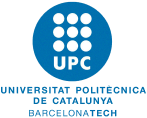News
Biomass in the EU
The Energy Transition in Europe

When we think of renewable energy, most people imagine majestic wind turbines or fields of solar panels shining in the sun. But there is a renewable energy source that, silent yet powerful, is driving the European Union toward a cleaner future: biomass. Currently, biomass accounts for 60% of all renewable energy in the EU, making it a key pillar for heating and energy supply, especially in cold countries where it is essential for heating homes and public spaces.
An Essential Resource in the European Energy Mix
This renewable source, based on organic materials such as forest and agricultural waste, has a strong presence in countries like Finland, Sweden, and Austria, where heating largely comes from biomass. The importance of this resource lies not only in its energy contribution but also in its ability to reduce dependence on fossil fuels and promote a circular economy. Biomass often comes from local waste that, instead of being discarded, is used to produce clean energy, creating jobs in rural areas and helping develop more resilient economies.
Benefits and Challenges for Sustainability
However, biomass is not without its challenges. To meet the EU’s goals, which aim to achieve 42.5% renewable energy by 2030, the use of biomass must expand in a sustainable way. It is essential to ensure that the raw materials come from environmentally friendly sources, avoiding practices that harm forests or biodiversity. In this regard, European governments and energy companies are working to regulate the origin and use of biomass, promoting sources like pruning residues or agricultural byproducts that do not negatively impact the environment.
Towards a Clean and Fair Energy Future
Biomass has the potential to be the support Europe needs to reduce emissions and meet its climate commitments. The benefits of this energy go beyond lower CO₂ emissions; they also include boosting the circular economy and improving energy security. As its use grows, local jobs are created in forestry, logistics, and maintenance, while reducing risks associated with reliance on imported fossil fuels.
Biomass could be the silent hero that drives Europe toward an energy-efficient and self-sufficient future, but its expansion requires a constant balance between development and sustainability. This unknown hero has proven it has the strength to lead the energy transition, but now it is up to us to ensure that this transition is as green as it promises to be.









